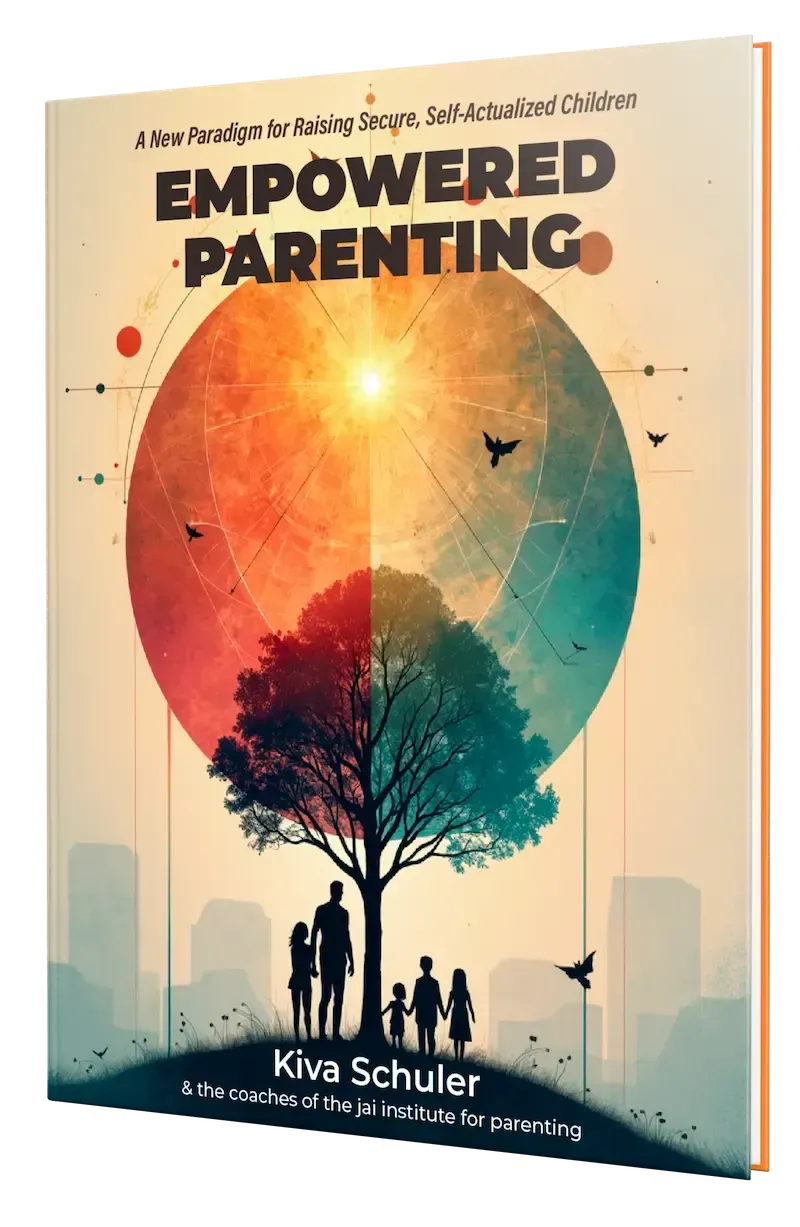Are You Triggered by Your Children?

Does this sound familiar? One minute, you're snuggling up with your kids, feeling all the love, and the next, you're worked up, ready to snap, wondering, "Why am I so easily triggered by my children?"
It's a hard and confusing reality for many of us. And it doesn't make you a bad parent. It makes you a human. One who probably has a past, a childhood, and maybe even some other experiences that can, at times, make parenting feel like nails on the chalkboard of your soul. I promise, judging by the number of Google searches for the above question,
"Why am I so easily triggered by my child?"
you are not alone.
Let's dive into why this happens and some simple (although not always easy) things you can do about it.
The Heart of Our Triggers
First of all, let’s get one thing out of the way: feeling triggered by your children doesn't mean you've failed. It's actually a sign pointing to deeper layers within you that are waiting to be understood and healed.
Often, the ways we were celebrated or disciplined as children play a big role in how we react to our own kids. If you were praised more for being quiet, convenient, and ‘behaving’ rather than for expressing your true self, seeing your child exhibit regular, developmentally appropriate behavior, like being loud and fooling around, might hit a nerve.
Recognizing Your Parenting Triggers
Identifying what sets off your parenting triggers is the first step toward managing them. This process is all about doing personal research. In this scenario, you'll be diving into your own emotional landscape.
In the moment, you can start by asking yourself questions like:
- Why is this behavior triggering to me?
- Is it the noise, the defiance, or something else?
- Did I get punished for this behavior as a child?
- Am I making my child's behavior about me?
- Am I worried about what others will think, or do I feel my child's actions reflect directly on me?
- What story am I telling myself right now about the behavior my child is exhibiting?
- Am I jumping to conclusions or assuming the worst?
Gently taking a closer look at what’s happening within yourself in these moments can begin to shed some light on things and loosen the energy around your reactions. Patience can be scarce in these moments, so try to slow down and take your time. It gets much easier the more ‘research’ you do.
If mentally going through these questions seems too hard in the moment, try carrying a small notebook with you and answer the questions there, or write them in your phone if that’s more convenient.
Why Do I Feel So Irritated with My Kids?
Feeling irritated or triggered is often a response to stress, unmet expectations, unmet needs, or personal insecurities (which we all have).
It might be a sign that you're in need of some time or attention for yourself. Taking care of yourself isn't selfish—it's essential. When you're well-rested, fulfilled, and in tune with your own needs, you're way better equipped to handle parenting challenges with grace.
Navigating Through Triggers
Acknowledging and understanding your triggers is a powerful step toward healing and growth, both for you and your family. Here are a few simple strategies to consider:
- Pause and Breathe: Before reacting, take a deep breath to create space between the trigger and your response. This simple act can help you respond more calmly and thoughtfully. It creates the space of reflection where all change begins.
- Reflect and Journal: Writing down your feelings can help you process and understand your triggers. When you know what’s underneath your anger, frustration, or impatience, you can meet any unmet needs you uncover.
- Seek Understanding: Try to see the world from your child's perspective. This simple change can help shift your response from frustration to empathy. Get curious about what’s happening in their world, and what their underlying needs are.
- Self-Care: Prioritize time for yourself—but for real. Treat it the way you treat your kids' activities. You might not always feel like doing it, but you make it happen anyway because you know it’s important. A happy parent is always more resilient and patient.
- Seek Support: Join a parents’ group or seek the guidance and support of a parent coach to gain new insights and strategies.
Parenting is not about being perfect. It's about being present, learning, and growing alongside our children. Understanding what triggers us and why, and knowing how we can transform our reactions into responses creates a more understanding, compassionate, and loving environment for our family.
By facing our triggers, we not only foster a more harmonious home life (and feel better ourselves), we also model for our children how to navigate their own emotions and challenges. So, the next time you feel triggered, remember: This is an opportunity for growth for both you and your child. With practice, you can create the inner calm you and your child deserve.
Empowered Parenting
Raise Resilient Children Without Power Struggles
In this FREE ebook, we explore how you can:
- Navigate your child's big emotions without caving in or resorting to reactivity
- Techniques to set
effective boundaries and limits that stick… Peacefully!
- Ways to
foster true self-reliance in your children
Meet Your Author, Katie Owen
Jai Business Coach & Marketing Mentor
As a former practicing therapist turned copywriter and marketing strategist, Katie is passionate about the intersection of marketing and mindset. Katie embodies the practices of taking the simple actions, consistently over time, that create epic results.
A master storyteller, Katie works with our coaches to refine their message, increase their visibility and get clients!
Share This Article:
Curious for more?















